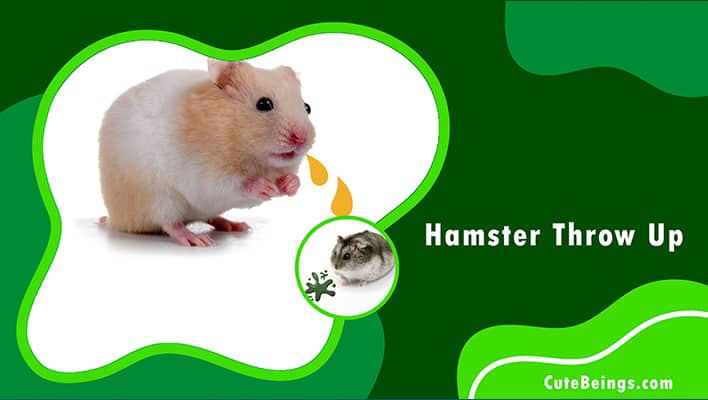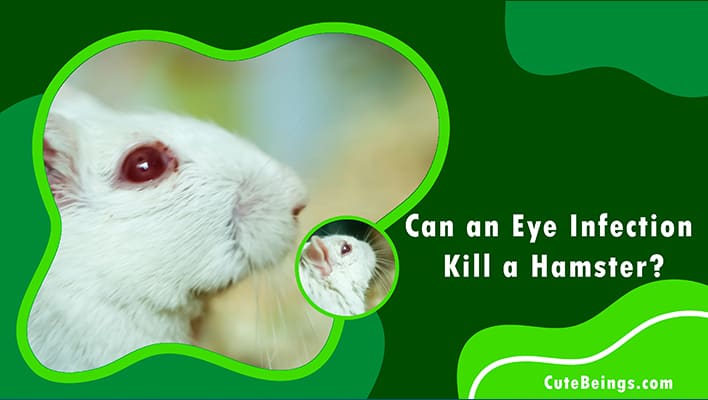As I observed, hamsters use their body language cues to show their humans how they feel. For example, they might yawn, and open their mouths wide to display their long teeth to show the humans how they feel. In other words, if your hamsters happen to yawn and stretch, that literally means they are refreshed after a long nap. Apart from that, they may tend to yawn when they are comfortable and relaxed too.
That said, hamsters may yawn when they are tired as well. Furthermore, hamsters may yawn to depict their anxiety factors such as fear, stress, boredom, etc. At first, all these yawning signals may seem the same to you but once you get used to these pets you will learn to distinguish those features and learn what they really mean. Therefore, it is vital that you pay special attention to the hamster’s behavior before they yawn and after they yawn.
Although this seems an insignificant subject, many people ask me about hamster yawning and what it means. So, I thought about sharing some of my experiences in this article. In this, I will explain hamster yawning, the reason behind yawning, etc. if you are a hamster owner who wishes to learn about this aspect, keep on reading this article.
Table of Contents
Why is my hamster yawning?

Generally speaking, hamsters may yawn when they are happy and contented. They would usually yawn mostly in the early evening before they get ready to run on their wheels and escape from the cages. Consider that your hamster enters your room and yawns in front of you, then it literally means they are quite comfortable when you are around.
However, hamsters may tend to yawn due to tiredness too. However, this could be less common among hamsters. Consider that your hamster yawns when they are free and running around, then the best would be to return them to their cages. In that case, your hamsters may yawn to denote stress. Furthermore, they may do that when they are bored as well. As such, ensure that you provide sufficient entertainment for them so that they will stay engaged.
Some of the common causes which would make the hamsters yawn are as follows. First, they may tend to yawn once they wake up. The first thing we would also do when we wake up is a yawn. Further, you may tend to stretch your limbs also so that it would release the euphoric endorphins. And not surprisingly hamsters do the same. Literally, hamsters would stretch their body as long as they can once they are up from their bed. Whilst they are doing that, they may tend to yawn while stretching their body as well so if hamsters yawn followed by stretching that means they had a very good sleep and they are happy about it.
Hamsters may tend to yawn for the purpose of relaxation as well. They would do this to show their human owners that they are relaxed and feel secure when they are around. Consider that hamsters yawning while you are interacting with them, it literally means the hamsters are bonding with you well. However, hamsters would consume a longer period to get this friendly with their human owners.
If the hamsters who are in cages yawn, that means they are ready for grooming or just finished one. For example, they may groom themselves or even end up taking a sand bath. Hamsters are a set of creatures that maintain their hygiene well. Hence, they would stay clean most of the time. Having said that, they would tend to groom them only when they feel calm.
Exhaustion could be another reason why your hamsters may yawn. These animal species like to explore their surroundings (inside and outside cages) and they will end up exhausted after that. Hence, they would prefer to spend a shorter time out of the cage. Usually, the hamsters in the wild would spend slightly more than one hour on the ground when they go in search of food. But, they would make shorter trips which would be limited to only five minutes. They make those short trips when they forage for food as they do not want to expose themselves to unnecessary risks.
However, when you keep hamsters as pets, they might not act the same. First they might refuse to come out at all, but once they get familiar with you they would feel a sense of security when you are around. If you are keeping them as pets and if you allow them to play whilst removing them from the cages, they will tend to move freely. After some time, they would slow down their activities and start yawning. If you come across a situation like this, the best would be to return them to their cages.
Hamsters may yawn when they are feeling bored. If you keep the hamsters in their cages for too long, they will become more lethargic. Ultimately it would force them to flee the cages as they may want to experience some adventures. Some people tend to use a small wheel to keep them engaged. Besides, you could consider providing tubes for them to explore as well. Furthermore, provide them with some toys, and chew toys to entertain them. You may also think of adding things to shred and letting them have fun as well. Apart from that, you may also attach salt licks to the cage bars. Furthermore, consider placing hammocks and staircases for the hamsters to climb. Moreover, you can be tactful to hide the treats within the hamster’s cage so that it would fulfill their need for foraging.
Lastly, hamsters may yawn when they are going through stress and anxiety. Once they experience stress or anxiety, they pose their teeth and make a hissing noise while yawning. So, if you spot your hamster hisses when yawning you need to let them do it in their own space. Do not ever try to get involved with this as if you do so, chances are that they may end up biting you. Besides, if the hamsters sense any smell of a predator, they would start to become stressed and anxious. Further, if you mishandled the hamsters, it would also make them go through stress and anxiety. Excessive noise and disturbed sleep would also make them go through stress and anxiety.
Is it normal for a hamster to yawn?
Yes, it is normal behavior for a hamster. Further, it could also be due to displacement behavior or due to aggressive display as well. Whenever you spot the hamster yawning, what you could ideally do is let them be alone. Let them complete yawning and keep monitoring their behavioral changes.
Why does my hamster stretch out?
Hamsters may stretch when they feel relaxed and calm. If you are interacting with the hamsters, chances are that they would stretch as long as they can. This literally means they feel comfy in your company.
Stretching and Yawning

Hamsters may tend to stretch and yawn, and it is a commonly spotted behavioral act among the hamsters. This is not something that you need to start worrying about as it literally means they are happy and content.
Why does my hamster yawn in front of me?
They would yawn in front of you when they feel like they are secure. If your hamsters do this, they are enjoying your company and getting the best care from you as well.
Why do hamsters yawn so big?
As now you know hamster yawning represents many things. To understand it precisely you need to observe their behavior after yawning. If your hamster makes a big yawn and stretches its legs that means they are quite happy about its situation. If a hamster hisses or shows its teeth while or after yawning that means they are stressed out about something. Or if they yawn and try to go into the cage that means they are exhausted after outside exploration. Like that their yawn means so many different things. But I must say most of the time big yawns mean they are just recovering from a good night’s sleep.
Conclusion
To recap, hamsters may tend to yawn due to multiple reasons. It could be due to boredom, sleepiness, exhaustion, or stress. Further, they may do that right after they wake up as well. So, it is always best to get along with the hamsters a lot so that you will know why they yawn.

Hello, my name is James and I’ve been caring for tiny pets for over 14 years with a passion. I enjoy passing on my expertise to other individuals in order for them to have the same amount of enjoyment as I do.




